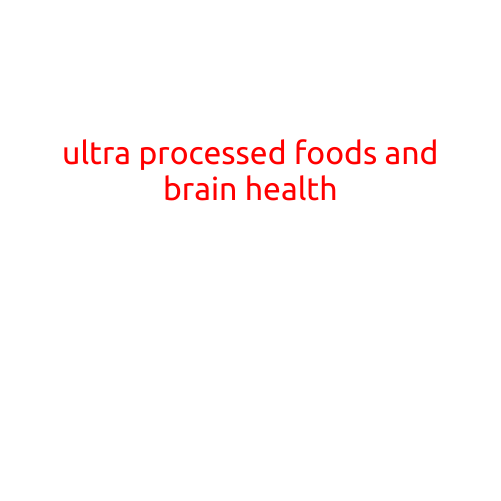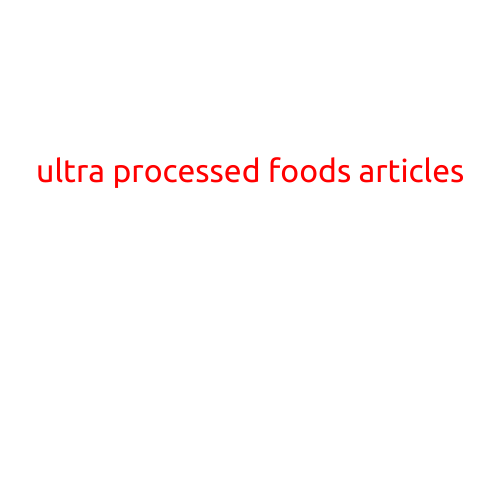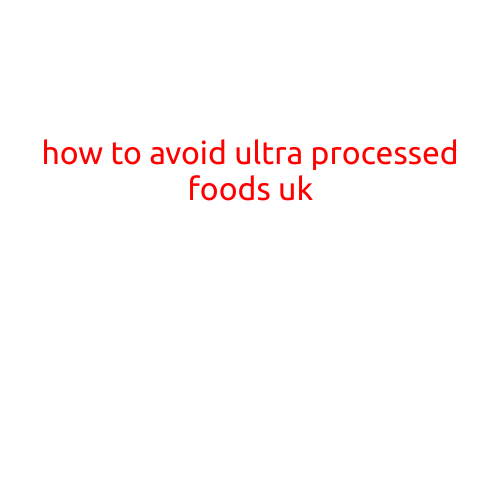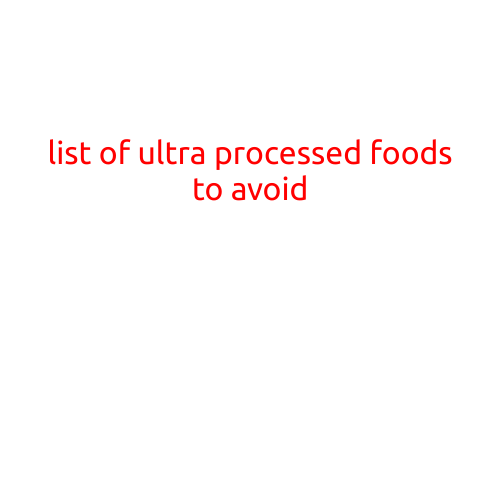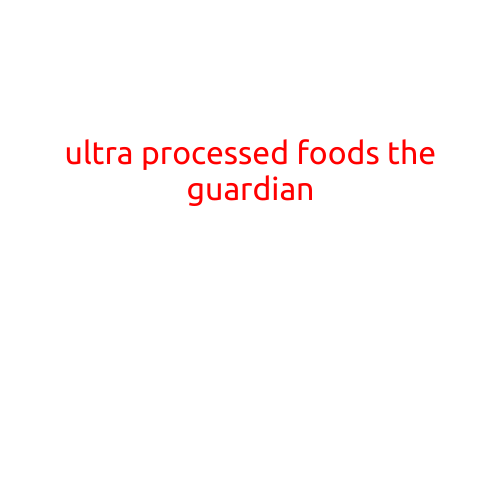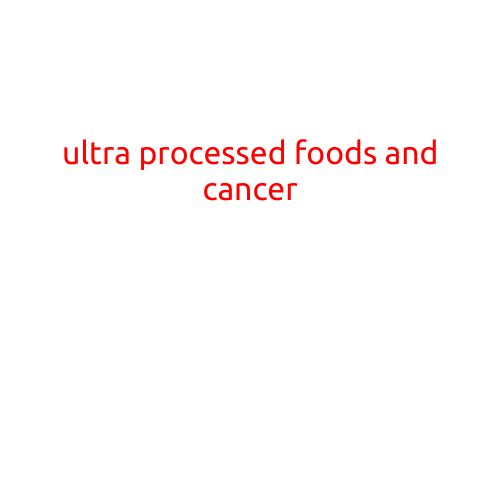
Ultra-Processed Foods and Cancer: A Growing Concern
The global diet has undergone a significant transformation in recent decades, driven largely by advances in food technology and processing. While these innovations have made it possible to produce a wide range of convenient and affordable food products, a growing body of research suggests that ultra-processed foods may be contributing to a rise in chronic diseases, including cancer.
What are Ultra-Processed Foods?
Ultra-processed foods are products that contain a high proportion of processed ingredients, such as added sugars, refined carbohydrates, and processed fats. These foods are often highly convenient and can be found in most supermarkets, including packaged snacks, frozen meals, sugary drinks, and processed meats.
The Connection to Cancer
Studies have consistently linked ultra-processed food consumption to an increased risk of chronic diseases, including heart disease, type 2 diabetes, and certain types of cancer. A recent study published in the journal PLOS Medicine found that eating high amounts of ultra-processed foods was associated with a higher risk of colorectal, breast, and prostate cancers.
The exact mechanisms by which ultra-processed foods may contribute to cancer are not yet fully understood, but several potential factors have been identified:
- Nutrient imbalance: Ultra-processed foods are often low in essential nutrients, fiber, and antioxidants, and high in empty calories, added sugars, and unhealthy fats. This imbalance can lead to nutrient deficiencies and oxidative stress, which can contribute to cancer development.
- Endocrine disruption: Some processed foods, such as artificially sweetened beverages and foods containing perfluorooctanoic acid (PFOA), have been linked to endocrine disruption, which can alter hormone levels and raise cancer risk.
- Inflammation: Ultra-processed foods may trigger chronic inflammation, which is a known risk factor for many types of cancer.
- Antioxidant depletion: The high levels of added sugars and refined carbohydrates in ultra-processed foods can deplete antioxidants in the body, making it difficult for cells to repair DNA damage and increasing the risk of cancer.
Which Foods are Considered Ultra-Processed?
Examples of ultra-processed foods include:
- Processed meats (hot dogs, sausages, bacon, ham)
- Sugary snacks (chips, crackers, cookies, candy)
- Refined grains (white bread, sugary cereals, pasta)
- Frozen meals (TV dinners, pizza, mac and cheese)
- Energy and sport drinks
- Sugary drinks (soda, sports drinks, energy drinks)
- Processed dairy products (cheese strings, processed yogurt)
What Can You Do to Reduce Your Risk?
While a complete elimination of ultra-processed foods from your diet may be unrealistic, there are several steps you can take to reduce your risk of cancer and other chronic diseases:
- Increase whole food intake: Focus on whole, unprocessed foods like fruits, vegetables, whole grains, lean proteins, and healthy fats.
- Read food labels: Be aware of the ingredients and processing methods used in the foods you buy. Choose products with fewer and more recognizable ingredients.
- Cook from scratch: Cooking meals from scratch using whole ingredients can help you control the amount of processing and added ingredients.
- Limit processed meat consumption: Try to limit or avoid processed meats, which have been linked to an increased risk of cancer.
Conclusion
The evidence is clear: ultra-processed foods are a concerning part of modern diets and may contribute to the rising rates of chronic diseases, including cancer. By increasing your intake of whole, nutrient-dense foods and reducing your consumption of ultra-processed foods, you can help mitigate these risks and support your overall health and well-being. Make informed choices today to protect your health tomorrow.
